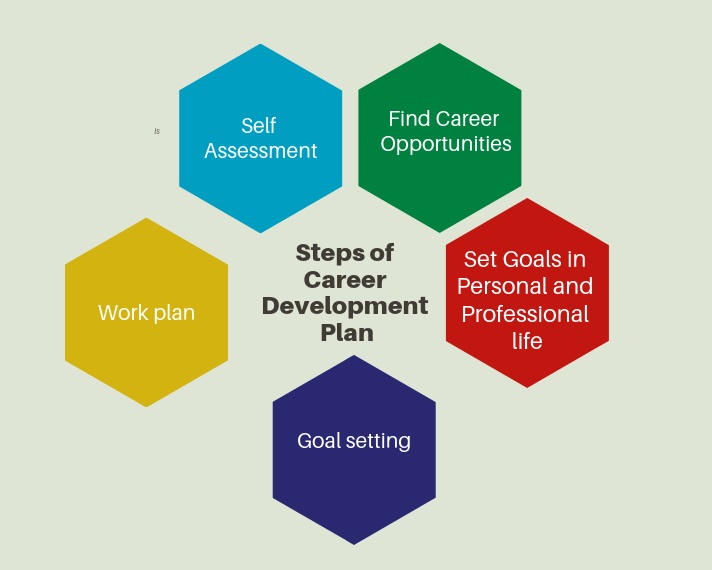
All organizations want to improve continuously. Change is one of the most effective ways to improve any organization. No improvement is possible without change. This rule applies to employees as well. Enhancing their careers will not be possible if employees do not want to change their lives.
Nowadays, if someone hopes that everything will be done correctly without doing anything or developing his skills without cows, he is undoubtedly living in a dream world. This is why many organizations have started self-development plans to make their employees efficient and become global leaders. With the acquisition of this new skill, they can easily step into the stages of personal development and enjoy a long-term successful career. The mantra of a successful career is contained in these simple words: with the appropriate skill, be an outstanding employee at the right time and place.
What is a Career Development Plan?
Career development is one of those rare steps that underscore the needs of both the employee and the employer. Every organization wants its employees to grow professionally to transform themselves into future challenges.
This is why organizations organize training sessions and learning curves (learning from their mistakes) to connect their goals to their individual goals. This process seems uninterrupted, but it presents many challenges during the implementation. Among organizations, the biggest reason for management and employees is the obstacles to communication.
Career Development Plan - Steps
Generally, there are two functions involved in building careers. -
- Build your future through career opportunities available and
- To achieve the organization's goals, expect an employee to fulfill the trust the employers showed in it at the time of selection.
The career plan can also be defined as the process by which the employee can use the available opportunities in his organization to pursue his benefits. However, it should be well within the boundaries of organizational compliance. In this sense, ideally, the employee should start a career plan before joining the company.
Five Steps to a Career Development Plan
The career plan includes five essential steps. They are -
- Assessing yourself and recognizing the areas of strength and autonomy
- Find career opportunities according to your qualifications
- Setting goals in pers
- onal and professional life
- Placing actions to achieve your goals
- Recurring Evaluation of Performance
Let us now look at the steps mentioned above in detail.

1. Self Assessment:
With proper skill, one evaluates the work of reviewing personal interests, priorities, strengths, and weaknesses to assess oneself. These reviews help to provide an accurate picture of the opportunities for career development for the organization's staff. Evaluation will also show a transparent image of the skill group required for specific job descriptions and advances.
However, this is an excellent tool for exploring opportunities for development in one's organization. Job seekers can use it to find opportunities through friends, family, and job fairs. This reality investigation will also help finalize the goals and determine the future objectives.
2. Find Career Opportunities:
After self-assessment, the next step is to investigate whether the person has the skills and how they can help him. At this stage, the candidate needs to outline all the steps to reach a specific career. It involves taking stock of technical knowledge and whether this knowledge is sufficient to get a job opportunity.
The following essential purpose is networking. The candidate should find out if someone in his contact list can provide opportunities for him or if such a person can help. A working professional can use this step to make a realistic assessment of his goals, whether his goals are still worth achieving, and whether all the changes in the workplace affect his attitude.
Most organizations conduct annual employee assessments, which include many self-assessment questionnaires. This is where the candidates can give themselves a proper point and prove to the management that they have contributed to the organization's development.
3. Set Goals in Personal and Professional life:
In this phase, the candidate examines a series of available career opportunities and determines what knowledge and skills will be required in his work of choice. In this sequence, the candidate researches and collects information from many sources, such as friends and colleagues, and tries to find the best way to work for him.
At this stage, many potential job seekers also post their profiles in job placement centers, providing them with a list of the desired qualifications that employers search for in the candidate's profile. A similar situation exists within the organization, where a particular situation is said to refine one's skills as a potential substitute.
4. Goal setting:
The third step in career planning is to determine the goal. A person must undergo self-assessment and examine his career opportunities to determine his long-term prospects in any organization. It is important for any candidate to check all the options for success.
It must also search for opportunities according to his interests, abilities, and skills. In essence, his goals should be specific, thoughtful, determined, and worthy so that he can assess his success while pursuing them.
5. Work plan
Job planning involves steps necessary to achieve goals, such as additional training or a specific managerial skill that anyone wants for the current or future situation. In this sequence, there are usually many dialogues with senior staff in various organizational roles because these senior people can share their information with the rest of the people and inform them about various mobility in the areas of work.
Periodic Evaluation of Performance
Progress made towards career goals in the final stage should be evaluated. Evaluating people's success helps them keep track of their progress and identify the strengths and weaknesses in their career plans.
This habit of self-assessment helps people manage their priorities and develop their skills in a continuous process. Skills do not grow in one day; they require constant effort. In addition, self-assessment helps people acquire knowledge in various activities in the field of work.
Career Development




